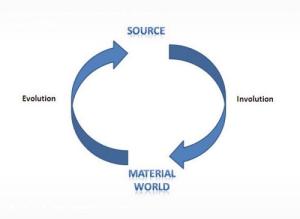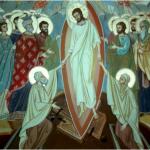Evolution and Involution in Vedic Science
SR 1016 Vedic Science
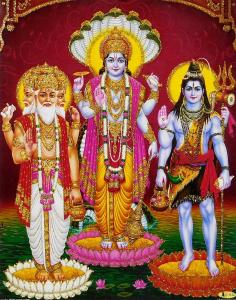
Is it accurate to dub Western science materialistic and Indian science spiritualistic? Could the Indian spiritual tradition redress the imbalance of European materialism, reductionism, and atheism? Is science only one more culturally specific ideology? Or does science offer a universal epistemology that is trans-cultural and multi-cultural? All these issues arise when Vedic science meets Western science in the laboratory.
Oh yes, the Dharma spiritual tradition in India reaches back perhaps three millennia to the seed sown by the Rig Veda ( ऋग्वेद ṛgveda) and the tradition that later flowered in the HIndu garden. The Vedic tradition blossomed especially with the Upanishads (उपनिषद् Upaniṣad) and the advent of Buddhism during the axial breakthrough. Perhaps the most fragrant nosegay was the non-dualism of 8th century philosopher Adi Shankara, who gave us Advaita Vedanta (अद्वैत वेदान्त, Advaita Vedānta).
Today, this premodern spiritual and philosophical tradition is becoming scientized. More. It’s becoming politicized. Vedic science invigorates Hindu nationalism (or Hindutva) in its native India, much to the chagrin of Muslim and Christian citizens.
Intellectual ferment can be viewed on websites of the Vedic Science Research Center, Prāgyatā, Maharishi’s Vedic Research Institute in Australia, and the American Institute of Vedic Studies. In their own way, rishi Ramakrishna Math along with integral new age guru Ken Wilber scientize involution along with evolution.[1]
Perhaps we should take a few paragraphs to sew together various discourse threads into a conceptual concinnity. Specifically, Vedic science includes inter alia a synthesis of scientific evolution with spiritual involution. Just how should we understand and assess this?
Should Hindus along with Christians dump Darwin?
Ordinarily, we assume that evolution and religion are like automobiles traveling opposite directions on our cultural highway.
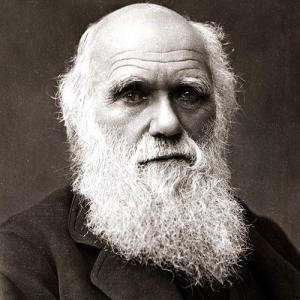
The theological problem with Charles Darwin’s (1800-1882) theory of evolution is that it reduces all life to material principles. The central insight of Darwin’s Origin of Species (1859) is that species are constantly changing. The principle that governs change is variation in inheritance acted on by natural selection. Natural selection is sometimes called ‘survival of the fittest’, according to which ‘the fittest’ refers to the species that survive long enough to bequeath progeny. Darwin’s explanation relies exclusively on physical or biological causes.
This exclusive reliance on natural causes leads to consternation among both Christians and Hindus. What the Christians find intolerable is the expunging of purpose or meaning or direction in Darwin’s biological story. What the Hindus find intolerable is the rejection of spiritual reality and divine direction.
In Christian circles, the schools of Creationism and Intelligent Design reject Darwin’s appeal to a strictly materialist explanation. Theistic evolutionists within the Christian camp accept Darwinism. But they wiggle in a divine teleology. I tried to explicate this controversial discourse in an earlier Patheos post, “Should Christians dump Darwin? No.”
In Hindu circles, a Vedic science has arisen that merges evolution with involution. The first point a Vedic scientist makes is that the spiritual domain is more real than the physical. Rather than positing that spirit evolved out of the material, the Vedic scientists claim the reverse. First comes spirit. Then the physical. Evolution over time is thought to be a process leading to the full realization of the unity of the physical and the spiritual. That’s involution added to evolution.
From Evolution to Involution
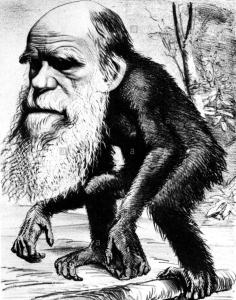
The anti-colonial impetus for liberation from British rule over India included a rise in Indian motivation to retrieve its own elysian intellectual history. After all, the sublime metaphysics of Advaita (non-dualism) philosophy blossoming from seeds sewn by the ancient Vedas and Upanishads matches the noetic splendor of Athens or Rome. But, what about modern science? What about Darwinian evolution?
Even though the stuffed shirts of Victorian England got their noses out of joint when Darwin and his bulldog, Thomas Huxley, told them that we humans are kinfolk with monkeys and other animals, no such insult was felt by Hindus. Why? Because for Hindus, “even the gods can assume animal features.” More. We humans can be “reborn as animals” in the incarnation cycle (Gosling, 2016, 78).
An Indian contemporary of Darwin, Keshub Chunder Sen (1838-1884), mapped the sequence of Hindu avatars on to the Englishman’s evolutionary sequence.
“The Purāņas speak of different manifestations or incarnations of the Deity in different epochs of the world’s history. Lo! The Hindu avatar rises from the lowest stage of life through the fish, the tortoise and the hog up to the perfection of humanity. Indian avatarism is indeed a crude representation of the ascending scale of Divine Creation. Such precisely is the modern theory of evolution” (Gosling 2016, Sen citation p. 79)
Two subsequent Hindu theologians of the revolutionary period stand out: Swami Vivekananda (born Narendranath Datta 1863-1902) and Sri Aurobindo Ghose (1872-1950). Each in turn synthesized Darwinian evolution with the Vedic tradition to produce the concept of involution.
The three-thousand-year-old Vedic revelations, contend these Hindu philosophers, accurately anticipated more recent scientific discoveries in post-Enlightenment Europe. European colonialists are Johnny-come-latelies when it comes to knowledge, even knowledge of evolution. Hinduism is better than modern Western science because Vedic knowledge is both first and superior.[2]
Evolution and Involution in Swami Vivekananda
We all recall how Swami Vivekananda became a rock star at the 1893 Parliament of Religions in Chicago. In his riveting address, Vivekananda told his applauding audience that all religions are true (Vivekananda, 1893 Speech at the First Parlaiment of World Religions 1893). Might this imply that all sciences are true as well?
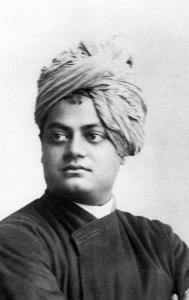
Vedic science is not only true; it is superior to Western science because it recognizes the underlying reality of spirit—actually Brahman–in physical processes.
Attuned to Shankara’s Advaida (non-dualism), Vivekananda held that there is…
“…one substance, manifesting in different ways and in various forms; the one life that runs through all like a continuous chain, of which all these various forms represent the links, link after link, extending almost infinitely, but of the same one chain. This is what is called evolution …. There is one thing more, which the ancients perceived, but which in modern times is not yet so clearly perceived, and that is involution.” (Vivekananda 1994, 2:227).
Rather than explain speciation by natural selection, Vivekananda explains it as a spiritual “infilling of nature.” Even if the violent struggle for existence takes place in the animal kingdom, “in the human kingdom, where there is the manifestation of rationality, we find just the reverse of those laws” (Vivekananda 1994, 7:154). Infilling nature lifts the evolutionary process up toward a wholesome future.
Vivekananda accomplishes two things here. First, he scientizes religion. Vivekananda “claims scientific status for religion and moves religions from the sectarian grove towards universalism,” is the judgment of A. Raghuramarju at the University of Hyderabad (Raghuramarju 2016, 95). Second, Vivekananda gives Indian nationalists one more reason to take pride in pre-colonial indigenous culture.
Postmodern and postcolonialists are dubious. “Vivekananda’s synthesis between Eastern religion and Western science was both original and imaginative,” observes David Gosling at the University of Cambridge. But “his Marxist and subaltern detractors [stigmatize Vivekananda] as a purveyor of colonial culture in an Eastern garb”(Gosling, 2016, 82).
Evolution and Involution in Sri Aurobindo
I have a particular affinity for the teachings of Sri Aurobindo. When researching new age spirituality and scientific futurology in the 1980s, I visited the Sri Aurobindo Ashram in Pondicherry, India. Reverence for the late maharishi and Mirra Alfassa—known affectionately as “The Mother”—lingered in the ambiance like the scent of the flowers in the garden. Much like Teilhard de Chardin, Aurobindo envisioned a future that included world peace and natural harmony. That attracted me like honey attracts a bear cub.
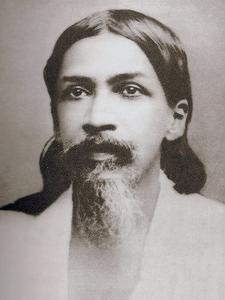
“Aurobindo follows a similar path” to that of Vivekananda, comments Raghuramarju. But “in a more sophisticated and systematic manner” (Raghuramarju 2016, 95). Aurobindo critiqued both Darwin and Darwinism for its unnecessary reliance solely on materialist explanations. Instead of proposing that the human mind evolved gradually out of material processes, Aurobindo proposes that those material processes arose out of a prior mind.
“We speak of the evolution of life in matter, the evolution of mind in matter; but evolution is a word which merely states the phenomenon without explaining it. For there seems to be no reason why life should evolve out of material elements of mind out of living form, unless we accept the Vedantic solution that life is already involved in matter and mind in life because in essence matter is a from of veiled life, life a form of veiled consciousness” (Aurobindo 1972, 18:3).
Aurobindo’s notion of involution presupposes that the all-encompassing and eternal ground of being, Brahman, extends itself to create our universe replete with a plurality of material forms. Evolution follows as a movement forward in time. Over time the created universe evolves from its initial state of inconscience (i.e. as matter) toward animated life forms and, then, to mental beings (i.e. humans). More. This evolution continues to evolve spiritual properties and, finally, rediscovers its spiritual Source. The culmination of evolution and involution is the Supermind imbued with truth, consciousness, and bliss (satchitinanda).
Clearly Aurobindo does not reject evolutionary biology. After all, this branch of science provides valuable knowledge of what happens in the material or physical domain. But it’s incomplete. It fails to attend to ultimate reality. Ultimate reality includes consciousness, spirit, and divinity. If Western culture is to be saved from its materialistic darkness, it must absorb Eastern insights into the involution of divine life.
Hindu me-firstism transplants modern Western science in the garden of premodern Vedic science. “Vivekananda and Aurobindo saw a contingent relation between Darwin and evolution by pointing out that evolution in India pre-dates Darwin” (Raghuramarju 2016, 100-101). And, further, Vedic science fills leaky holes in Darwinism’s materialist boat.
Is Vedic Science good science? Or even science at all?
My criterion for distinguishing genuine science from pseudoscience is fruitfulness. I ask: does a theory stimulate empirical research that leads fruitfully to new knowledge?
My question to laboratory researchers is this: does Vedic theory prompt fruitful research programs that augments present knowledge with new and expanded knowledge? [3]
But this is not the question critics of Vedic Science ask. Rather, critics ask: does Vedic science embrace the post-modern or post-colonial denial of science’s claim to universality?[4] Does Vedic science embrace the universalist claims of modern science or repudiate those universalist claims? To these critical questions we now turn.
Is science universal? What do post-colonialists and post-modernists say about Vedic Science?
A curious zymurgy has been brewing that mixes indigenous gasconading with postcolonial social constructivism. Our postcolonial friends frame their assessments with the doctrine of cultural particularism, ascribing ancient Indian history to the subaltern.[] Postcolonialists relativize and destabilize scientific objectivity by consigning it to one and only one cultural context, namely, the European Enlightenment.[6] This move purportedly liberates indigenous forms of knowledge such as Vedic religion from colonial hegemony. In effect, postcolonial relativism legitimates ancient Vedic knowledge. But it legitimates it only as local or contextualized knowledge. Postmodern philosophy denies to ancient India any right to make universal claims.

This leaves us in a tricky situation. On the one hand, proponents of Vedic spirituality have been liberated from colonization by a foreign epistemology. But, curiously, on the other hand, the tradition of Vivekananda and Sri Aurobindo reaffirms universalization. Vedic science is universal science, they claim, while the European Enlightenment provides only partial science.
This rankles historians of science such as Meera Nanda of Pune, India. She contends that Vedic science should be filed with other pseudo sciences. Worse, it’s dangerous because it animates Hindu nationalism.
“Postmodernist attacks on objective and universal knowledge have played straight into Hindu nationalist slogan of all perspectives being equally true – within their own context and at their own level. The result is the loud – but false – claims of finding a tradition of empirical science in the spiritual teachings of the Vedas and Vedanta. Such scientisation of the Vedas does nothing to actually promote an empirical and rational tradition in India, while it does an incalculable harm to the spiritual message of Hinduism’s sacred books. The mixing up of the mythos of the Vedas with the logos of science must be of great concern not just to the scientific community, but also to the religious people, for it is a distortion of both science and spirituality” (Nanda, 2004).
Note how Nanda relies on the distinction between myth (mythos) and reason (logos) to distinguish between religion and science. I suggest that she fits the model dubbed Independence by Ian Barbour and what I call the two language model. Mythical religion and rational science speak two independent languages, apparently. And India should be bilingual, so to speak. At least according to Meera Nanda.

Nanda decries the political impact of the category mistake–the mistake of treating mythos as logos–within postcolonial and postmodern philosophy.
“This is the philosophical basis on which the Indian government recently introduced the study of astrology as an academic discipline at post-secondary level in state-funded colleges and universities. This is the philosophy that underlies the defense of countless miracles (idols drinking milk, for example) and supernatural powers of countless god-men from levitation to the memories of previous births. This is the philosophy that is used to declare the very first, and the most ancient Veda, the Rig Veda to be a book of physics and Vedic fire rituals to be shorthand for cosmology” (Nanda, 2003).
If Hindu nationalism is a fire, then Nanda wants to avoid throwing scientific fuel into the flames.
Should we retrieve the strictly modern commitment to the universality of science?
Meet V.V. Raman. Although his first name is Varadaraja, he encourages his American friends to call him “V.V.” V.V. is Emeritus Professor of Physics and Humanities at the Rochester Institute of Technology. “Science is one of the finest expressions of the human spirit,” he exclaims (Raman, 2016, p. 40).
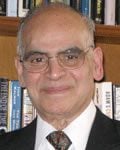
Despite treasuring his ancient Indian heritage, including the Vedic tradition, V.V. believes that we should treat modern science as a universal epistemology. Even though what we know as science first sprouted in a specific garden, the European Enlightenment, it now blossoms everywhere on the globe. Even in India.
“It is important to realize, whether one is from the East or the West, from the North or the South, that modern science is not Western any more than that algebra is Hindu or alchemy is Arabic, except that the accident of their geographical origin. For better or for worse, the scientific revolution merged diverse streams of search into a single surging river” (Raman, 2016, p. 46).
What, then, should we do about the Vedic religious tradition? We should treat it as a valuable heritage.
“The explanatory dimensions of pre-modern scientific cultures need to be preserved for their archival value,” not their scientific value (Raman, 2016, p. 44).
Conclusion
I offer two concluding observations. First, the most formidable barrier to dialogue between Hinduism and science is neither Hinduism nor science. The highest obstruction to jump is the doctrine of cultural particularism promulgated by postmodern and postcolonial philosophies.
My second observation spells out how this places the Hindu-science dialogue in a paradox. The modern scientific epistemé has persuaded scholars in every clime and every ethnicity to pursue objective, trans-cultural, and universal knowledge. Whether in Siberia or the Amazon or the banks of the Ganges, scientists congratulate one another that they have purchase on objective knowledge. This universal knowledge applies on Earth as well as the furthest galaxies.
Religious traditions, due to the doctrine of cultural particularism, are consigned to contextuality, subjectivity, and perspectivism. Theological claims are denied universality. At least by postcolonial and postmodern philosophers.[8]
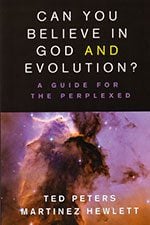
This puts Vedic science in a paradox. On the one hand, Vedic sience benefits from postcolonial and postmodern philosophy which denies universality to Western European science. These philosophies protect and legitimize local knowledge systems, including the Hindu religious tradition. On the other hand, proponents of Vedic science such as Swami Vivekananda and Sri Aurobindo want their Vedic version of science to share the universality currently enjoyed by scientists in every culture around the world.
It is my observation that Hindu cosmology right along with Christian theology make claims that are universal in scope.[7] Whether in creation or eschatology, there is nothing in reality that is not touched by these theological systems. For postmodernists to sequester such religious traditions into their respective historical contexts is to violate the very essence of their theological visions. By denying the universality of religious claims, postmodernists tyrannize the very traditions they are trying to protect from Western European hegemony.
It is quite natural, then, for Hindu theology or Christian theology to seek rapproachment with the scientific knowledge system. The question that cedes integrity to Vedic science and perhaps to Christian theistic evolution is this: do these syntheses of theology and science provide adequate explanations that, among other virtues, stimulate fruitful empirical research that expands or deepens our grasp on reality?
▓

Ted Peters is Distinguished Research Professor Emeritus of Systematic Theology and Ethics at Pacific Lutheran Theological Seminary and the Graduate Theological Union. Along with Robert John Russell he co-edits the journal, Theology and Science, published by CTNS. He is author of Playing God? Genetic Determinism and Human Freedom (Routledge, 2nd ed., 2002) plus a single volume systematic theology, God—The World’s Future (Fortress, 3rd ed., 2015). Along with evolutionary virologist Martinez Hewlett, he has co-authored three books on the evolution controversy.
Peters’ edited and co-edited books such as AI and IA: Utopia or Extinction? (ATF 2019) and The CRISPR Revolution (forthcoming Praeger 2023) explore technological and ethical scenarios that alert us to the need for public policy formulation before matters get out of hand. Ted has just published a new book, The Voice of Public Theology, with ATF (2023). Visit his website, TedsTimelyTake.com and his Patheos blog site on Public Theology.
▓
Notes
[1] One Wilber critic, Frank Visser, contends that Wilber fails to understand Darwinian evolution accurately enough to claim to be scientific. “In Wilber’s interpretation of this philosophical doctrine, Spirit is not only the source and the goal, but also the driving force behind this whole cosmic drama. This is the reason why his brand of spirituality is often called “evolutionary”—a misnomer, in my opinion, given Wilber’s scant knowledge of evolutionary theory.”[2] A controversy arose in India when in April 2023 serveral topics were excised from school textbooks up to 10th grade, including evolution. Evolution would not be treated until the 11th grade. Establishment scientists have become outraged. Anti-Darwinian religious forces do seem to be the culprit. Rather, the culprit is Vedic Science. “Indic religions did not perceive evolution or Darwinism as a threat to their beliefs,” write complaining scientists L.S. Shashidhara and Amitabh Joshi. “The emergence of specifically anti-Darwinian stances, even while often still acctpting evolution as a general process, may partly be motivated by the urge among some in India to claim that all major scientific insights can be traced to ancient India”(Shashidhara, 2023, 1303).
[3] Here is the key that unlocks the clarity of what is transpiring in the controversy over evolution: Darwin’s opponents see themselves as supporting science. In his 2016
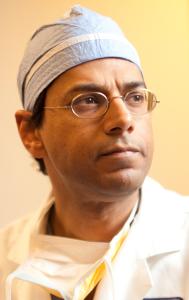
commencement address at Cal Tech, surgeon and public health researcher Atul Gawande turns the key the right direction. “People don’t argue back by claiming divine authority anymore. They argue back by claiming to have the truer scientific authority. It can make matters incredibly confusing. You have to be able to recognize the difference between claims of science and those of pseudoscience.” My observation is this: the war is not between religion and science. Why? Because all sides respect science. The war is over what constitutes sound science. Vedic scientists along with Christian creationists will lose this war because their science fails the test of empirical fruitfulness.
[4] “The postmodernist consensus is that since truth about the real world as-it-is cannot be known, all knowledge systems are equivalent to each other in being social constructions. Because they are all equally arbitrary, and none any more objective than other, they can be mixed and matched in order to serve the needs of human beings to live well in their own cultural universes” (Nanda, 2004).
[5] Previously unlistened to voices are labeled subaltern, a term derived from Italian communism. Ranajit Guha notes how in general parlance subaltern means “of inferior rank.” He then uses subaltern as a “general attribute of subordination in South Asian society whether this is expressed in terms of class, caste, age, gender, and office or in any other way” (Guha 1988).
[6] “Postcolonial thought aims at “decentering universal and transhistorical values of Western categories of knowledge. It questions the three mainstays of the Enlightenment: objectivity, rationalism, and universalism” (Sugirtharajah, 2012, 15).
[7] Indian critics of science blame biblical religion for desacralizing nature. “Science with its roots in Judeo-Christian cosmology is hostile to nature. Nature has lost the sense of the sacred and taboo and is read as a mere commodity,” complains Shiv Visvanathan in Pax Lumina, perhaps the world’s finest public theology online magazine.
[8] In his 1908 treatment of evolution and involution, it’s clear that T.C. Rajan Iyengar intends to make universal theological and scientific claims. “My aim at present is to give a comprehensive outline: (1) The Evolution of the Cosmos. (2) The Descent of the Universe and Man, otherwise known as Involution. (3) The Ascent of Man. (4) The Methods of Man’s Ascent. The Theory or Science of Raja-Yoga deals with the first three points, and the Art deals with the fourth” (Iyengar, 1908, xx).
Works Cited
Aurobindo, Sri, 1972. The Life Divine. Pondicherry: Sri Aurobindo Birth Centenary Library.
Darwin, Charles, 1859. On the Origin of Species by Means of Natural Selecton. London: Murray.
Gosling, David L., 2016. “India’s response to Darwin.” In Science and Religion: East and West, edited by Yiftach Fehige, 30-47. London: Routledge.
Guha, Ranajit, 1988. “Preface.” Selected Subaltern Studies. Eds., Ranajit Guha and Gayatri Chackravorty Spivak. Oxford: Oxford University Press.
Iyengar, Tirumangalum Chrishna Rajan, 1908. The Hindu-Aryan Theory on Evolution and Involution: On the Science of Raja-Yoga. New York and London: Funk and Wagnals.
King, Anna, 2015. “Vedic Science, modern science and reason.” In Asian Religions, Technology and Science, edited by Istvan Keul. London: Routledge; 54-73.
Nanda, Meera, 2004. Postmodernism, Hindu Nationalism, and Vedic Science. Wheels and Butterflies.
Nanda, Meera. 2003. Postmodernism, Science, and Religious Fundamentalism. Butterflies and Wheels.
Peters, Ted and Martinez Hewlett. Evolution from Creation to New Creation. Nashville TN: Abingdon, 2005.
Raghuramarju, A. , 2016. “Perspectives on the relation between science and religion in India.” In Science and Religion: East and West, edited by Yiftach Fehige. London: Routledge.
Raman, Varadaraja V., 2016. “Science international (beyond the West): the ups and downs of trans-cultural science.” In Science and Religion: East and West, edited by Yiftach Fehige, 30-47. London: Routledge.
Shashidhara, L.S., and Amitabh Joshi, 2023. “Not teaching evolution is an injustice.” Science 380:6652 (30 June) 1303.
Sugirtharajah, R.S., 2012. Exploring Postcolonial Biblical Criticism. Oxford: Wiley-Blackwell.
Vishvanathan, Shiv, 2023. “Peace, Science, and Technology.” Pax Lumina 4:1:18-20.
Vivekananda, Swami, 1893. 1893 Speech at the First Parlaiment of World Religions. Chicago: Chicago Art Institute.
—, 1994. The Complete Works of Swami Vivekananda, 8 Volumes. Calcutta: Advaita Ashram.


